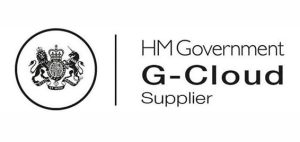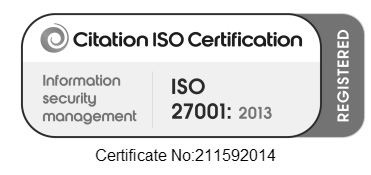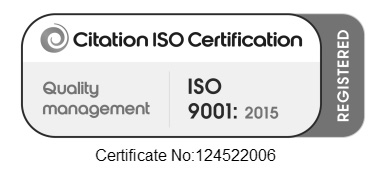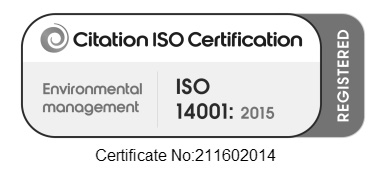A year filled with unprecedented challenges and a need to navigate external pressures more collaboratively than ever before, 2022 is definitely another one for the history books. But while it’s certainly been different, it hasn’t come without reward and opportunity.
As we take time to reflect on our successes over the past 12 months, we’re filled with an overwhelming sense of pride and accomplishment over the things we’ve achieved.
And while you’ll often find us working in the background to keep your business-critical operations running smoothly – whether that’s optimising your tech infrastructure or providing first, second, and third-line support – we thought we’d pinch the limelight for just five minutes. Here’s what we’re celebrating…
While Central was already granted G-Cloud status, the recently introduced 13th iteration called for a renewed application. And we’re delighted to have been appointed!
From hosting and software to general support, this digital marketplace opens up new markets for the business – extending our cloud technology to public sector customers. With 10 new services already live for organisations to procure, we’re excited to broaden our horizons even further in 2023.
Despite only joining the fold this year our latest recruit has made a significant impact with colleagues, customers, and partners alike.
Bringing a portfolio of experiences and oodles of personality, Vicki not only keeps the business on top form, but is an excellent addition to the team on a cultural level too. Here’s hoping we get some equally impactful recruits next year! If you want in, why not contact us?
Sticking with the employee theme, we’re delighted to have seen Jordan Gallier take the next step in his career in 2022 – as he rose up the ranks from technical to senior architect.
Starting out as an apprentice just a few years ago it’s been a real privilege to watch Jordan move forward alongside the management team and play an ever-integral role in business growth and success. Who knows what’s next…
Being trusted to deliver on our promises has always been part of our DNA, here at Central. And while the advice we give has always been based on honesty and objectivity, this has been especially important for every sector we operate in this year – not least with so many challenges and questions around the integrity of organisations.
By providing comprehensive, well-considered assessments of IT requirements, this has given our customers the assurance they so desperately needed this year. And it’s something we look forward to continuing in 2023 and beyond.
As an outsourced IT partner, the support we offer is vast and varied. And since starting out in 1991, our mission to place IT at the heart of every business and keep it as headache-free as possible hasn’t wavered. This year, that’s seen Central strengthen existing relationships with clients and partners, as well as develop a whole host of new ones. Some notable mentions for various housing clients, for points six to 12, include…
And there’s plenty more where that came from! The end of the year brings no greater joy than the opportunity to thank our clients and partners for their continued support. We look forward to an even greater 2023, together.
You’ll also be pleased to know that, besides the bank holidays, we’ll be operating business as usual over the festive period. Those with out-of-hours cover in their contract should have the information on how to contact us, should Central’s support be required during this time.
If you have any questions or concerns, please don’t hesitate to get in touch.
One of the biggest shortcomings of user ID and password logins from tech users across the globe is that details can be easily compromised, causing irreparable damage and leaving organisations significantly out of pocket as a result.
Whether through malicious malware, phishing attacks, or automated password cracking tools, perpetrators have a whole host of methods to gain entry into your systems. And as the cyber warfare climate continues to become increasingly volatile, the risk of having one or multiple of your accounts hacked is only becoming more of a threat.
That’s why multi-factor authentication (MFA) is such a crucial line of defence in any security strategy today.
So, what is multi-factor authentication?
While two-factor authentication (2FA) previously formed the foundations of many online security protocols, vendors are increasingly turning to MFA to help augment their levels of protection – not least because the Cyber Essentials scheme recently made MFA mandatory on all cloud service accounts in order to pass certification.
Combining two or more independent credentials – from passwords and security tokens to biometric verification methods – MFA is a state-of-the-art security technology which uses a layered defence mechanism to protect a target.
If a user is unable to verify their identity, they will be rendered as an unauthorised personnel and refused access to the desired data or resource. Plus, if one factor is compromised or broken, the remaining elements act as a fortress to keep attackers from breaching any further barriers and gaining entry.
But with so many MFA combinations available, how can firms ensure they’re choosing the best fit for their needs on both a cultural and commercial level?
Here, the team at Central delves deeper into key considerations to factor into your decision-making…
Five tips to help you choose the best MFA solution for your organisation
Of course, needs and requirements will differ from one firm to the next, but there are some crucial elements that will help you lay the foundations of your security strategy when it comes to multi factor authentication.
1. Cost and ease of deployment
As with any tech investment, the initial cost of implementing an MFA solution can be a barrier for many. However, the benefits that come to fruition long-term will make the return on investment (ROI) worthwhile.
For companies with a tighter budget, managed IT partners can help to spread the cost of maintenance on an ongoing basis – including server infrastructure, hardware distribution, and vendor support.
It’s also important to understand that, with the wrong solution, deployment can be a complex task with time consuming configurations needed to onboard employees – which can be even more challenging if your network environment is a hybrid of on-premise, cloud-based, and custom applications. That’s why we’d recommend getting users to self-enrol rather than putting a heavy admin task on one individual.
2. User-friendly authentication
MFA should not only be easy to roll out, but it should also be simple to use. Some employees may not feel confident in approaching a security request, and others may be limited when it comes to resource access – not everyone has a smartphone, for example. Plus, without advanced warning of MFA protocols, users can feel blindsided by the process and will instinctively reach out for support and reassurance – which naturally swells workload for the IT team.
With this in mind, it’s important for organisational leaders to ensure that cost and security are balanced with usability and understanding across the entire scope of a team to increase acceptance.
3. A variety of pre-built integrations
The best MFA providers will offer pre-built integrations with a broad spectrum of popular business applications – so you can both easily authenticate your employees and better manage and protect your security network.
This doesn’t just apply to everyday productivity tools either, but those bespoke to your own firm that may not be available off the shelf. Check whether your prospective MFA solution supports custom integrations with applications and services or more industry-specific examples.
4. Flexibility and scalability
In such a mobile world, it’s important that any tech solution you implement is flexible to support employees, irrespective of location, in their time of need. If a user is trying to access data off-site, but doesn’t have a hardware token such as a USB to hand, they should still have an option to use software tokens such as smartphone apps or push notifications, as well as biometrics such as facial recognition or fingerprint scanning, to authenticate their identity.
And, because business environments are becoming increasingly volatile, any MFA solutions need to be scalable too, so it can be deployed across your entire organisation and levelled up or down as required. This means security practices should be consistent from one employee to the next, and cover all users – whether working in the office or remotely, and accessing cloud or on-premise applications.
5. Reporting and analytics
Data provision should be one of the key factors you consider when comparing MFA solutions. The most value-adding MFA solutions will give you a clear oversight of your firm’s security landscape to help both improve processes and support compliance and auditing initiatives.
For example, reports that detail when are where authentication attempts are taking place can help to identify any malicious activity, so you can revoke access to unsecured devices that are compromising your security posture.
Closing thoughts
There’s no denying that MFA is a powerful tool that can bring an abundance of benefits to organisations of varying shapes, sizes, and sectors – not least when it comes to adding that extra peace of mind to access security.
But it’s important to remember that a successful solution will be utilised by the entire team, which is why making sure it suits the needs of everyone – from apprentices and help desk support officers to C-suite executives – will play a key role in headache-free implementation.
While there’s rarely a one size fits all approach to any element of tech in the business world, these steps should help to offer a starting point to guide your MFA journey.
As always, if you need any further support to help enhance your security strategy, please don’t hesitate to get in touch with one of our experts. We’d be happy to help.
In the meantime, why not follow us on LinkedIn and Twitter?
The cloud is a revolutionary computing paradigm that has completely transformed the way we do business – not least by generating significant efficiencies across the board.
Taking software and data out of local premises and placing them within a secure global network of remote servers, the cloud operates as a single ecosystem to help manage and maintain digital infrastructure. Underpinned by third-party operation, it enables 24/7 access to data whilst eliminating unnecessary expenses and downtime.
The chances are, your firm is already using a handful of applications hosted on the cloud – from social media sites and email platforms, to productivity suites offered by industry giants like Google and Microsoft.
And with an endless selection of options to deploy resources – from public, community, and private, through to hybrid models – organisations of varying scopes and sizes can benefit from a complete computing overhaul.
But proceed with caution! While the benefits of using cloud-based services over outdated, in-house IT models are clear – reliability, scalability, efficiency, and security, to name just a few – it’s not necessarily right for every company.
So, to help inform your decision and formulate the most successful strategy for your organisation, here are some of the key things to consider when determining the suitability of cloud computing…
Cost.
While the cloud offers a significant range of cost efficiencies – through the elimination of redundant technology and labour requirements, lower power costs, and reduced carbon footprint – it’s important to evaluate the price of switching infrastructure.
Capital expenditure (CapEx) and operational expenditure (OpEx) should be key considerations when weighing up your options – as the financial differences will influence the option you choose.
For most businesses, a pay-as-you-go OpEx plan is the obvious choice, helping to keep financial forecasts stable and predictable, while offering the flexibility to cancel or modify a plan at any given moment, and freeing up internal resources to focus on driving value for your organisation.
However, if companies prefer to take control of cloud services – including costs and maintenance – and generate long-term revenue by improving production facilities and boosting operational efficiency, a private cloud might be a more suitable option.
Security and compliance.
With the increasing sophistication of cyber-attacks, maintaining a strong cloud security posture is key if your organisation is to house highly sensitive business information and intellectual property online – especially if your industry is highly regulated. Luckily, most private and hybrid infrastructures support compliance, but scrutinising this area to ensure your company’s needs are met is crucial.
The off-site nature of cloud storage, in which data is hosted in a separate location from your business, automatically reduces some risks – including the removal of USB sticks, or forwarding of login details – but there are some other key elements to look out for in your security strategy. These include:
Collaboration and flexibility.
Cloud-hosted platforms enable users a greater degree of flexibility, by allowing them to access files anytime, anywhere. It doesn’t matter if your teams are working remotely or in the office, on a laptop or a tablet – as long as each device is connected to the internet, important files can be accessed and updated conveniently.
But that’s not all, cloud-based software suites like Office 365 also unlock contemporary ways of working by empowering creative collaboration. With the ability to share documents both internally and externally, co-author in real time, and attend meetings virtually, cloud computing not only creates a shared understanding across your organisation, but crucially bolsters the team dynamic and encourages fresh ideas into fruition.
But don’t just innovate for innovations’ sake – if your teams are successfully collaborating without needing cloud intervention, don’t feel like you have to make a change.
While the technology industry has become a burgeoning powerhouse in recent years – offering an ever-increasing myriad of benefits to businesses from SMEs through to corporate enterprises – there can often be a mounting pressure to conform.
And while growth often brings an unavoidable need to adapt in some form or another, change can be marginally different from one organisation to the next.
To delve deeper into the topic of cloud with one of our experts, please don’t hesitate to get in touch – let’s discuss your options, together.






Central Networks are a strategic technology partner. Excellent technology is a given, customer service, trust and long-term relationships are what drive our business. We support CEOs, Heads of IT, IT technicians and transformation directors to ensure technology provides an edge to their organisations.
Company No: 02604843
VAT: GB 562 6919 13